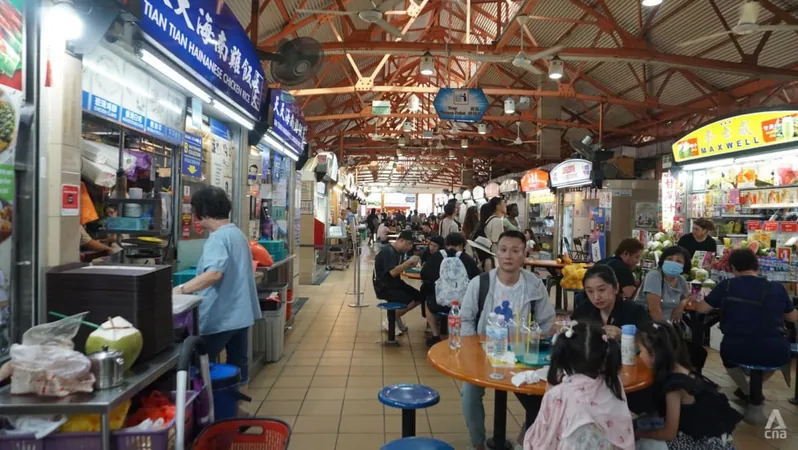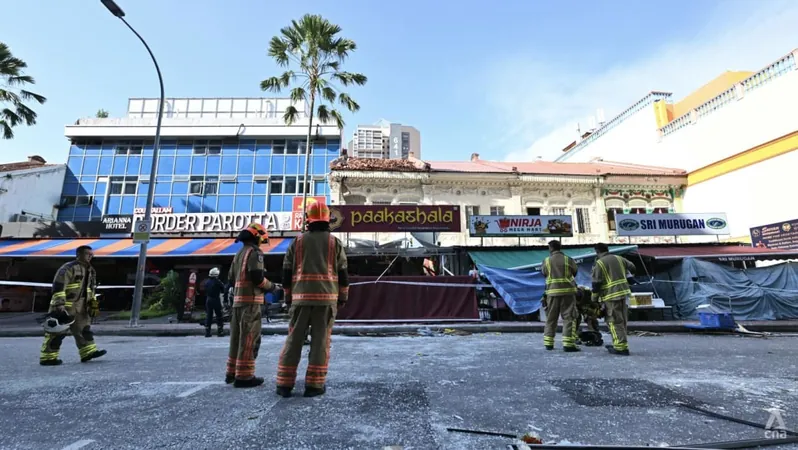
Exciting Change: Hawker Stalls in Singapore Can Hire Long-Term Visit Pass Holders Starting January!
2024-10-14
Author: Ming
SINGAPORE:
In a groundbreaking move announced on Monday, Senior Minister of State for Sustainability and the Environment, Koh Poh Koon, revealed that hawker stalls will soon be permitted to hire long-term visit pass holders (LTVP) as stall assistants starting January 1. This decision comes as a significant boost to hawkers currently facing manpower shortages in the bustling food industry.
Until now, the hiring landscape for hawker stalls was restricted exclusively to Singapore citizens and permanent residents. However, under the new policy, spouses of stallholders who hold LTVP or LTVP-Plus (approved work) will also be eligible to work, providing much-needed flexibility and support to these small business owners.
Dr. Koh emphasized that rising manpower costs are a pressing concern for hawkers, and the relaxation of hiring policies will expand their options for staffing. “The NEA (National Environment Agency) is committed to supporting hawkers, and further measures are currently under study,” he stated, indicating that more initiatives to assist these local entrepreneurs may be on the horizon.
The announcement comes amid ongoing discussions about hawker stall rentals, particularly following an eyebrow-raising bid of S$10,158 (approximately US$7,770) that was submitted for a stall at Marine Parade Central Market and Food Centre— a staggering figure marking the highest bid for a hawker stall in six years. Despite this anomaly, Dr. Koh reassured that such high tender prices are not the norm, revealing that one in five cooked food stalls were awarded at tender prices at or below S$500 last year.
With the median successful tender price for cooked food stalls hovering around S$2,000 in 2022 and dipping to S$1,800 in 2023, there’s a clear indication that many hawkers can secure stalls at affordable rates. The NEA conducts monthly tender exercises that they claim are “transparent and fair,” allowing stallholders to bid without a minimum price, a policy shift that has been in place since 2012.
After an initial three-year tenancy period, rents are adjusted based on professional market assessments, which provides an opportunity for stallholders to secure lower-than-market rents during their first term. This approach is seen as a way to encourage entrepreneurship and maintain the vibrant food culture that Singapore is known for.
In light of these changes, 2024 promises to be an exciting time for Singapore’s hawker scene. With greater workforce flexibility on the horizon and ongoing assessments of rental practices, hawkers may find the support they need to thrive. Stay tuned for more updates on how these policies evolve and impact the future of hawker food in Singapore!




 Brasil (PT)
Brasil (PT)
 Canada (EN)
Canada (EN)
 Chile (ES)
Chile (ES)
 España (ES)
España (ES)
 France (FR)
France (FR)
 Hong Kong (EN)
Hong Kong (EN)
 Italia (IT)
Italia (IT)
 日本 (JA)
日本 (JA)
 Magyarország (HU)
Magyarország (HU)
 Norge (NO)
Norge (NO)
 Polska (PL)
Polska (PL)
 Schweiz (DE)
Schweiz (DE)
 Singapore (EN)
Singapore (EN)
 Sverige (SV)
Sverige (SV)
 Suomi (FI)
Suomi (FI)
 Türkiye (TR)
Türkiye (TR)